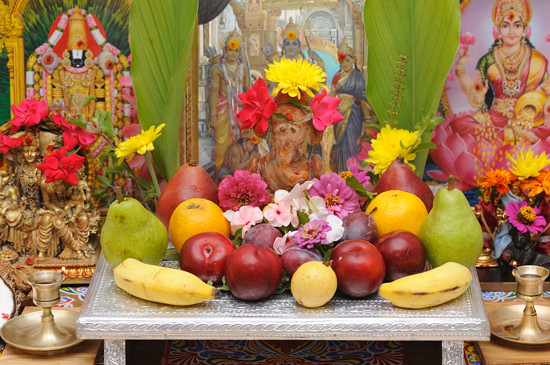Introduction
In the early 20th century, Jati Sekhara Prabhu, a devoted member of the Gaudiya Mission, was about to leave the association of the revered Vamsidasa Babaji Maharaja. He had been ordered to return by the head of the Gaudiya Mission. Before departing, Jati Sekhara Prabhu sought Vamsidasa Babaji’s mercy and blessings, asking for guidance on the type of sadhana (spiritual practice) he should follow.
The Allegorical Story
Vamsidasa Babaji responded by narrating an allegorical story to Gopala, another devotee present at the time. The story was about a tree on the seashore, sometimes on the sand and sometimes in the water. When Narada Muni asked the tree about its situation, the tree replied, “I will stop the sea from coming by building a dam of sand.”
The Interpretation
Later, Jati Sekhara Prabhu asked a senior member of the Gaudiya Mission for the meaning of this story. The devotee explained that the tree on the seashore represents the jivas (individual souls), the tatastha-sakti (marginal energy) of the Lord. The jivas are sometimes in maya (illusion) and sometimes out of it. Just as it is impossible to build a dam of sand across the ocean, it is impossible to attain the Lord’s mercy by merely following sadhana or any material means. One must receive the mercy of devotees, which in turn attracts the Lord’s mercy. The grace of the spiritual master is essential for spiritual advancement.
The Essential Instruction
Babaji Maharaja continued with another analogy. He recounted that Narada Muni once asked Lord Krishna a similar question. Krishna replied, “Bring flowers and fruit. Then worship Me.” When Narada asked where he could obtain these items, Krishna said, “If you cannot get these items, then chant My name even only once at the end of each day.”
Lessons to Be Learned
- Mercy of Devotees: The story emphasizes the importance of receiving the mercy of devotees. Devotional service and spiritual progress are greatly facilitated by the blessings and guidance of advanced devotees.
- Role of the Spiritual Master: The mercy of the spiritual master is indispensable. The guru acts as a conduit for divine grace, leading the disciple on the path of devotion.
- Simplicity in Devotion: Even if one is unable to perform elaborate rituals or obtain specific items for worship, chanting the holy name of the Lord is sufficient. The sincerity of one’s devotion is more important than the external acts of worship.
- Humility and Realization: Understanding one’s position as the tatastha-sakti, sometimes influenced by maya and sometimes by the divine, helps cultivate humility. Realizing that material efforts alone cannot grant divine mercy fosters a deeper reliance on spiritual practice and the mercy of devotees.
Related Quotes
Srimad Bhagavatam
- “By rendering devotional service unto the Personality of Godhead, Sri Krishna, one immediately acquires causeless knowledge and detachment from the world.” (SB 1.2.7)
- “O best among the twice-born, it is therefore concluded that the highest perfection one can achieve by discharging the duties prescribed for one’s own occupation according to caste divisions and orders of life is to please the Personality of Godhead.” (SB 1.2.13)
Caitanya Caritamrita
- “By the mercy of the spiritual master one receives the benediction of Krishna. Without the grace of the spiritual master, one cannot make any advancement.” (CC Adi 1.45)
- “Instruct everyone to follow the orders of Lord Sri Krishna as they are given in Bhagavad-gita and Srimad-Bhagavatam. In this way, become a spiritual master and try to liberate everyone in this land.” (CC Madhya 7.128)
Srila Prabhupada’s Writings
- “The spiritual master is to be honored as much as the Supreme Lord because he is the most confidential servitor of the Lord. This is acknowledged in all revealed scriptures and followed by all authorities.” (Bhagavad-gita As It Is, 2.8, Purport)
- “One should chant the holy name of the Lord in a humble state of mind, thinking oneself lower than the straw in the street; one should be more tolerant than a tree, devoid of all sense of false prestige, and ready to offer all respect to others. In such a state of mind, one can chant the holy name of the Lord constantly.” (Siksastakam, Verse 3)
Prayer
Prayer for Devotional Guidance and Mercy
“O Supreme Lord, I seek the mercy of Your devotees and my spiritual master, for their grace is essential in my spiritual journey. Grant me the humility to understand my position and the wisdom to follow the path of devotion with sincerity. May I always remember Your holy name and depend on Your divine mercy. Om Namo Bhagavate Vasudevaya!”
Conclusion
The story of Jati Sekhara Prabhu and Vamsidasa Babaji Maharaja highlights the paramount importance of the mercy of devotees and the spiritual master in achieving divine grace. Through humble and sincere devotion, one can transcend material limitations and attain the ultimate goal of life – the loving service of the Supreme Lord.



